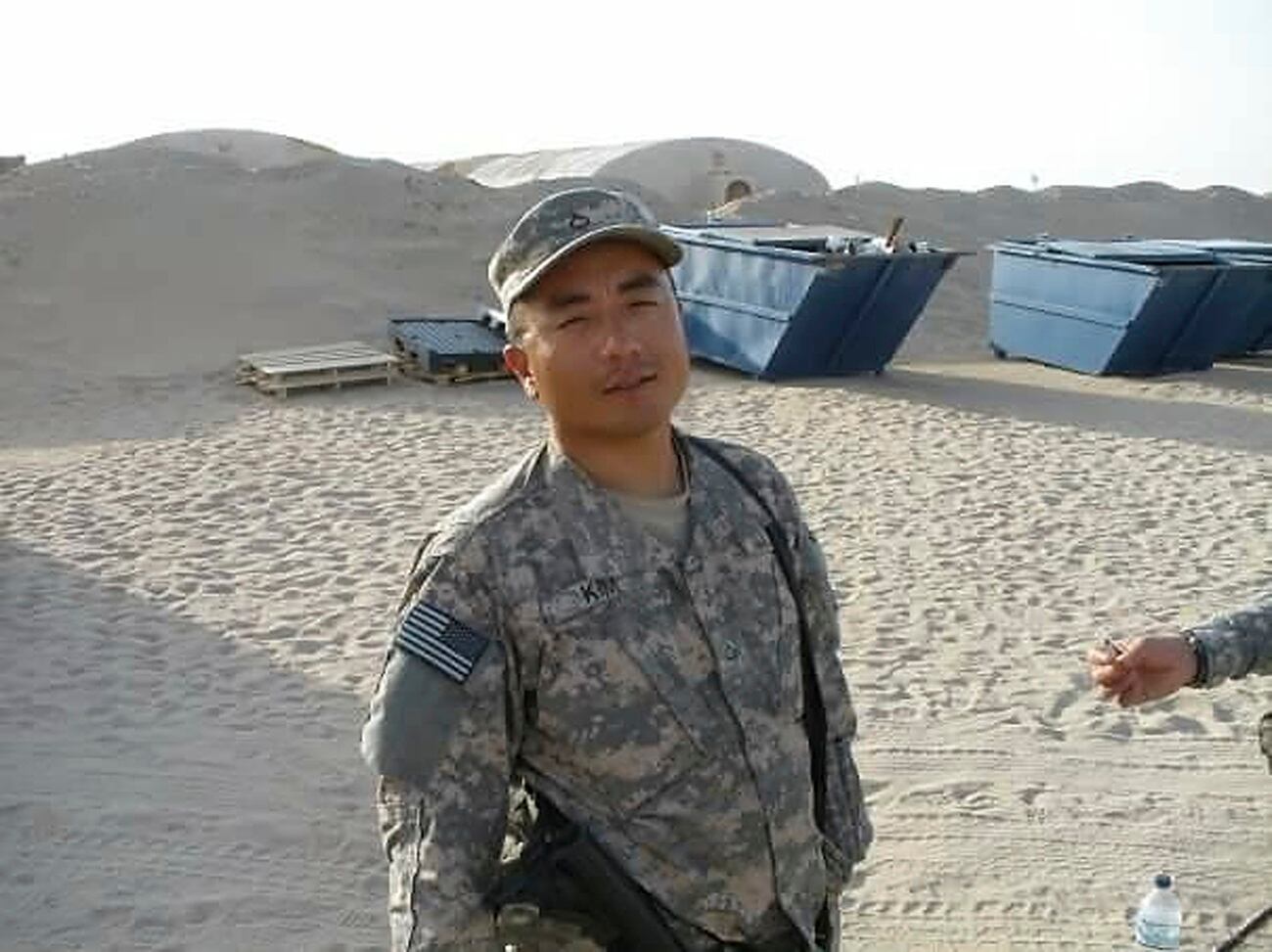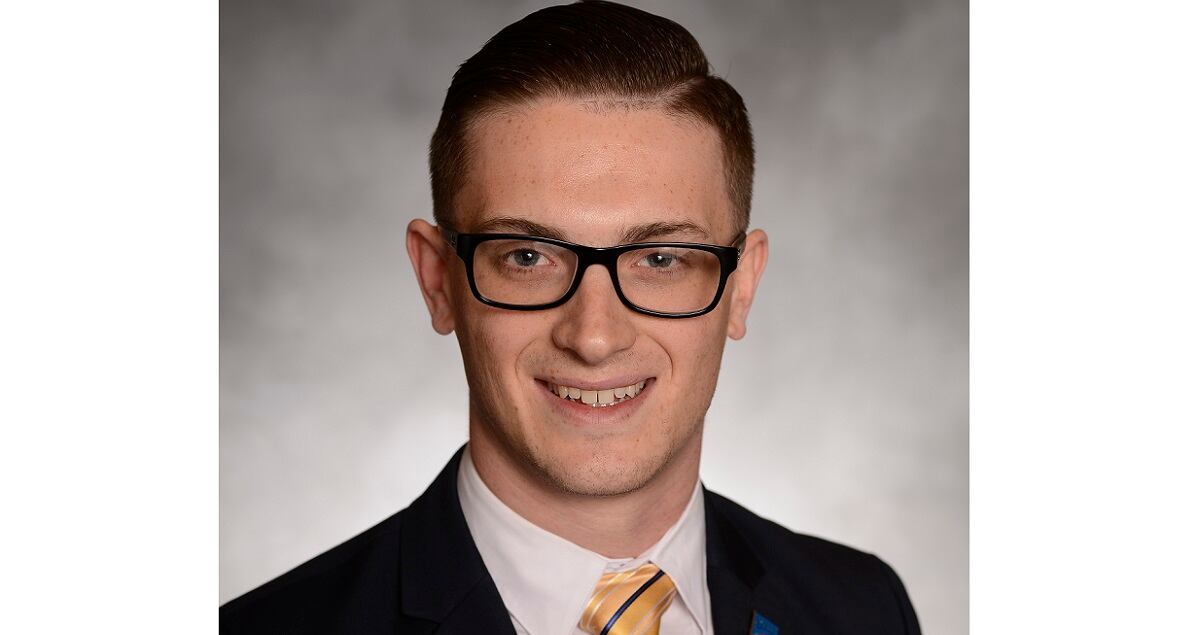I met Leon Hugues Fouomene Lekoubou at basic training. A 27-year-old, lanky green-card holder from Cameroon.
He left his widowed mother, three brothers, and — unknown to him at the time — unborn son to immigrate to the U.S. and join the Army.
He spoke very little English, which contributed to significantly more confusion at Fort Benning, Georgia, than any of us. He always had a blank, confused stare that frustrated the drill sergeants, who screamed at him incessantly.
What Leon lacked in comprehension, however, he made up for in heart. He finished the two-mile run portion of his fitness test in 11 minutes and 40 seconds, an exceptional time compared to most. When a drill sergeant yelled at him for his sweaty nose, he applied antiperspirant to his face. He never questioned a command — he just solved every problem as it arose, and he never complained.
Despite making my efforts at being a model soldier look minuscule in comparison, Leon was considered less of an American.
This unfortunate reality is not exclusive to him. Leon is one among approximately 8,000 noncitizens who join our military every year, representing about 95 countries.
In the post-9/11 era, more than 109,000 immigrants have been naturalized through service. Foreign-born soldiers have deployed to every American conflict, risking their lives for the U.S before being eligible to drive or vote. And while these immigrants, including Leon, continue to contribute in every occupation among our ranks, thousands have been deported and even more risk deportation as the current administration rolls back naturalization programs.
Last September, in response to a Pentagon memo that expressed security concerns, the Army reneged on the enlistment contracts for hundreds of non-citizen recruits, who faced deportation shortly after. The following month, the administration further cracked down on immigrant enlistments by reversing the Pentagon’s expedited path to citizenship via its Military Accessions Vital to the National Interest program, or MAVNI.
The service cited fears of espionage, though the two most-publicized recent cases of gross espionage in our military ranks came at the hands of American citizens, and one of those citizens — Chelsea Manning — is running for Senate.
The truth is unsettling. Immigrant veterans, despite honorably serving this nation, are facing the reality of our government deporting them — if it hasn’t already.
A report by the Texas Civil Rights Union says 3,000 veterans who served in our military have been deported. A similar report from the American Civil Liberties Union of California stated that nearly all deported veterans qualified for naturalization while in the service, but lost their status due to administrative failures by our federal government.
RELATED

Although Defense Secretary Jim Mattis said recently that the 850 “Dreamers” in service or awaiting basic training, as well as any noncitizens honorably discharged, would not be deported even if their legal status had expired, the Department of Homeland Security has yet to corroborate the statement. Meanwhile, veterans sit in Immigration and Customs Enforcement detention centers.
Some lawmakers have taken a stand. Sen. Tammy Duckworth, D-Ill., introduced a bill Feb. 8 in the hopes of saving Miguel Perez Jr. — a veteran of two combat tours — from deportation. Last August, she introduced several bills aimed at protecting immigrants with veteran status from deportation.
In the House, Rep. Vicente Gonzalez, joined by Alaska Republican Don Young and fellow Texas Democrat Beto O’Rourke, introduced the Repatriate our Patriots Act last July. The bipartisan bill seeks to return deported veterans to the U.S. (Disclosure: I work in Gonzalez’s office.)
Veterans-affairs legislation is historically well accepted on Capitol Hill, but these efforts on behalf of foreign-born service members are meeting uncharacteristic resistance. This means immigrants like Leon will have to continue an undeserved fight for legal status.
Luckily for him, Leon joined during the Obama administration, and his American citizenship was expedited. Although he has not yet been back to Cameroon to meet his son, now 8, they enjoy daily telephone banter in his native French.
A sergeant now, Leon mentors and leads young soldiers, teaching the Army values of loyalty, duty, respect, selfless service, honor, integrity and personal courage. Ironically, his dream is to work for U.S. Customs and Border Protection.
Leon hasn’t considered moving back to Cameroon. When I asked him, he responded, “This country is my country, man. I am going to stay. It is my home.”
America is your country, Leon, and we are most fortunate to have you.

Mark Footerman is an Army veteran and HillVets Congressional Fellow in the office of Rep. Vicente Gonzalez. He works on veterans, defense, health care and immigration issues.





